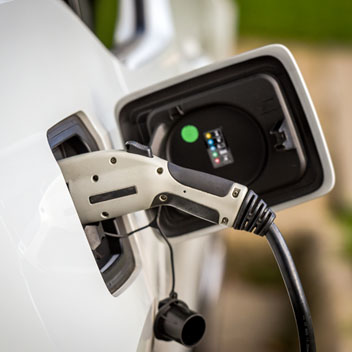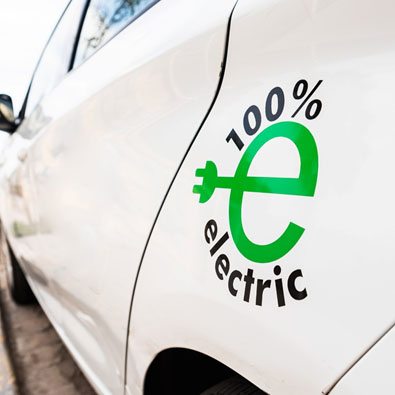Introduction
The future of transportation is electric, and legacy automakers are rapidly shifting gears to keep pace. In a surprising turn of events, Japanese rivals Nissan and Honda announced a strategic partnership to explore collaboration in the realm of electric vehicles (EVs). This move signifies a significant development in the auto industry, with two longtime competitors joining forces to tackle the challenges and opportunities presented by the EV revolution.
Why the Electric Avenue?
The global automotive landscape is undergoing a seismic shift. Consumer preferences are tilting towards cleaner and more sustainable transportation options, driven by rising environmental concerns and government regulations. China, in particular, has emerged as a dominant force in the EV market, leaving established Japanese carmakers like Nissan and Honda scrambling to catch up.

A Strategic Alliance
For decades, Nissan and Honda have been locked in fierce competition, pushing the boundaries of automotive innovation. However, both companies recognize the need for a strategic shift to succeed in the new electric era. This partnership is not just about staying competitive; it’s about combining their strengths to accelerate efforts towards carbon neutrality and zero traffic accidents.

The joint statement highlights the importance of “strengthening environmental and electrification technologies as well as software development.” This collaboration allows them to pool their expertise in battery technology, electric powertrains, and software development – crucial areas for building next-generation EVs.
Shifting gears: The road ahead
The Nissan-Honda partnership is still in its early stages. A feasibility study will determine the specific areas of collaboration, which could include:

- Joint development of electric vehicle platforms: Imagine a world where Nissan’s expertise in powerful electric motors is combined with Honda’s fuel efficiency know-how to create a new generation of long-range, high-performance EVs. A collaborative platform strategy could lead to the creation of standardized EV architectures, streamlining production and potentially bringing down costs for consumers. This can also lead to a faster development cycle for new EV models, giving both companies a first-mover advantage in this rapidly evolving market.
- Battery technology breakthroughs: Batteries are the heart of any EV, and their range, charging speed, and overall efficiency are key factors influencing consumer choice. By combining their research and development efforts, Nissan and Honda could achieve breakthroughs in battery technology, paving the way for EVs with extended ranges and shorter charging times. This could be a significant boost for consumer adoption, addressing a major pain point for potential EV buyers who are often concerned about range anxiety.
- Software savvy for smarter evs: The future of transportation is not just about electric vehicles; it’s about connected and intelligent vehicles. By working together, Nissan and Honda can leverage their software development capabilities to create a new generation of EVs equipped with advanced driver-assistance systems (ADAS), intuitive infotainment features, and seamless connectivity. This can not only enhance safety and comfort for drivers but also pave the way for the development of autonomous driving technologies, shaping the future of mobility.
The electrifying effect on consumers
The potential implications of this partnership for consumers are vast. Here are a few exciting possibilities:

- A wider EV palette: Imagine a future with a broader range of EVs to choose from, catering to diverse needs and budgets. This collaboration has the potential to accelerate the development of new and improved EVs, offering consumers more variety and flexibility when considering electric options. With a wider range of EVs available, consumers are more likely to find a vehicle that perfectly suits their lifestyle and driving needs.
- Affordability on the fast lane: Collaboration in areas like battery procurement and platform development could lead to economies of scale, potentially bringing down the cost of EVs for consumers. This can make clean transportation more accessible to a wider audience, accelerating the shift towards a sustainable future. By making EVs more affordable, this partnership can play a significant role in driving mainstream adoption of electric vehicles
- Safety first on the electric highway: Both Nissan and Honda have a strong focus on safety innovation. This partnership could lead to the development of even more advanced safety features for EVs, such as enhanced collision avoidance systems and improved pedestrian detection technology. This can give consumers greater peace of mind on the road, knowing they are protected by the latest safety advancements.
A charged-up future for the auto industry
The Nissan-Honda partnership is a landmark collaboration with the potential to be a game-changer for the Japanese auto industry. By combining their strengths and expertise, they can compete more effectively with Chinese EV giants like BYD and Tesla. Consumers can expect to see a wave of exciting new electric vehicles hit the market in the coming years, thanks to this strategic partnership. This alliance between two longtime rivals signifies a new era of cooperation in the auto industry, paving the way for a future powered by clean and sustainable electric transportation.

Conclusion
Despite the challenges, the Nissan-Honda partnership represents a significant step forward for the electric vehicle revolution. By combining their expertise and resources, these two Japanese giants have the potential to become major players in the global EV market. Consumers can expect to see a wave of exciting new electric vehicles hit the market in the coming years, offering greater choice, affordability, and safety features. This collaboration signifies a new era of cooperation in the auto industry, paving the way for a future powered by clean and sustainable electric transportation. The road ahead might be challenging, but with a clear vision and a commitment to collaboration, this partnership has the potential to be a game-changer for the electric vehicle industry and a major boost for sustainable mobility on a global scale.